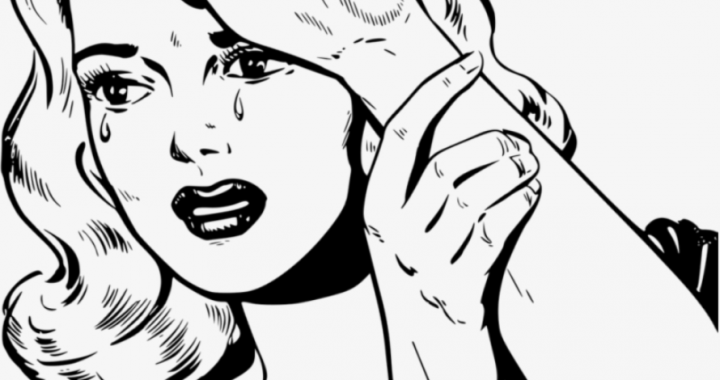This exercise builds off another idea from chapter one of Mr Bell’s simple and clean book on training your plot muscles. Essentially, the structure of our favorite books boils down to this acronym:
L.O.C.K.
In pieces, Lead, Objective, Confrontation, Knockout. Acronyms are sexy, we must admit, and choice mnemonic devices. Here, we are learning on how to lock our reader into a story. Good plot is what keeps you up at night. Strong plot is what you remember when a story is done.
Lead means opening with an engaging character. Bell says, basically, would you stop and talk to the protagonist on a street, or would you walk away, ignoring them? Doesn’t have to be a clean-cut handsome stud. People slow down on the highway to look at a car wreck. So make your protagonist that.
Objective, this is something out in front of you, something you want to get to. Once you’ve created someone you have to stop and look at, what are we seeing that person do? What do they want? What are they after? If we slow down to notice a car wreck, how crazy would it be to see a stream of steady gasoline leak and spill from the wreckage, flowing towards the ambulance and a fire truck? Oh no, we’ve seen this, in Hitchcock’s Birds. We start to get anxious, we know what is going to happen, there is an objective here!
Confrontation is putting a man up a tree and throwing rocks at him. Putting an unstoppable hero in a boxing ring with an unmovable villain. Or having a fire fighter, standing near the wreckage, start to light a cigarette, flicking the flint, frustrated, shaking the cheap lighter, as the gasoline trickles between his legs, and we’re all shouting, NO!
Knockout is pretty self explanatory. Do we like it when soccer matches go to penalties? Or do we like 4-1 upsets? What about our hero and villain? It would be lame if they ended their fight in a draw. Or consider the fire fighter . . . what kind of ending is it when the guy who shouldn’t be smoking gets away with it? No! Knockout! Smoking kills you! Heroes win! And upsets in the last minute of a game are remembered forever — the point of plot.
Yikes. So much preamble, as usual. Let us get on with the exercise!
Take some of your favorite albums off your shelf and analyze them using the LOCK system. See how each element is at work in the books you love. (Of the books I have in my bookshelf, I will analyze Zen and the Art of Motorcycle Maintenance, Gone With the Wind, and Zama.) Use these questions to help you.
What is it about the Lead that captures you?
In Zen, I am captured by he is a father, on a road trip with his son, and he discusses philosophy, creative writing, and quality. It’s like the dude were a 70s version of me! So highly relatable, doing and talking about things I love.
In Gone With the Wind, I am captured by the car wreck that is Scarlett, but also by how sensible and hard working she is. Another case of relateability, since it’s the story of an immigrant’s daughter who makes a life for herself in the wreckage of a war she never cared about. Plus she reminds me of my wife, hah, and I was on her ever word, waiting to see how she would react, in order to learn about my own . . . you know . . .
In Zama, I am captured by the sense of isolation, the sense of being at the wrong place at the wrong time, and wanting to be somewhere else, at least the way he was speaking. It is, again, relatable. The Lead makes me want to bet for him in the fight against hopelessnes.
What is the Lead trying to get to or get away from?
In Zen, the Lead talks about how he is trying to get away from his past (which seems unknown to him, though it hurt him) while he is always trying to get to the truth (the same past that haunts him, reluctant though he may be). Considering Mr Bell’s system of analysis, Zen does a great job of making the same force produce both reactions in the Lead.
In GWTW , Scarlett is trying to get away from poverty. She despises it, and never wants to be poor again, though it hangs around her and everyone she knows, after the war. What she wants is her boy Ashley, or at least to make enough money as to say f-you to the world. (When she gets it with Rhett, oh my . . . it isn’t enough!)
In Zama, the Lead is trying to get away from his station in Paraguay, which is demoralizing and dangerous. He wants to get to his family in Buenos Aires, but until that impossible dream, he wants to get into a rich aristocrat’s panties, then get some sort of fame as a bounty hunter . . . both failed ventures . . .
When did the story kick into “high gear”?
Zen: laaaatttttteeeeeeeeeeeee in the game. I remember at first only being interested in the insights of the protagonist, fueled purely on the curiosity of hearing/reading him. Halfway we come to learn about his past life as a creative writing professor and that’s when the plot thickens and we start to ask ourselves “what the hell is going to happen next?”
GWTW: When the Civil War kicks off, I’d say. By then we’ve meet Ashley and Rhett, as well as all the main players. The war starts, Scarlett gets married and becomes a widow in the span of two pages . . . and the rest of the novel is a roller coaster in high gear. Note: there are a loootttttt of pages before that.
Zama: I was hooked right from the beginning, but high-high gear was probably when the Spanish aristocrat lady appears. That’s when the Lead stops complaining about being stationed in Paraguay, and actually starts to make the most of his situation. A crush is never a bad thing when moving plot.
What is the main opposition to the Lead’s objective?
Zen: the simple fact of not remembering, and needing to narrate his life story from the beginning in order to make sense of his past . . . but also the fact that he is scared of finding out what happened, because of what it might mean for his idenity.
GWTW: practical things, like not enough rain, not enough food, thieves, and a freaking war. Real world externals that make this book such a survival guide.
Zama: his low social status keeps him from impressing the woman . . . also you could say his low social status is what keeps him stationed at a terrible place . . . also he isn’t too bright, can’t play the system, but not because of high morals or a backbone, rather he is a slimy losery dude, so it’s being himself that keeps him back.
How did the ending make you feel? Why did it work?
Zen: It was so sad when the story ended, because it’s a bit ambiguous and I could have listened to the narrator talk for another 500 pages. It worked because the story made me care about its characters, and the insights were real, wise, and thought-provoking. Honestly, the doubling idea, coming together for a Knockout at the end . . . yes, ambiguous, but undeniable at the same time. Ah. Awesome.
GWTW: Incredible sad, but also wickedly thankful since Scarlett got what she deserved. It worked because the book does an atomic job of putting me in her shoes. I wouldn’t have done what she did, given her same position, yet I understand why she did what she did. So when we see her at the end, that scene with her in the mist crying about tomorrow is another day, it worked because that had always been her mantra for 1000 pages . . . so I know, deep down, Scarlett has another fight in her, she is not done, life will continue!
Zama: Oh shit! The ending was so bad, sooooo bad, and this made me not like the book. It didn’t work because for 300 pages I am rooting for the guy, hoping he will win just once. And I keep flipping the pages, he keeps losing, and not getting what he wants, and the Holleywood boy in me things ok ok ok ok this is it! He will win! And then, at the end, after he loses everything . . . he just dies in the Amazon of Paraguay.
Like Aristotle said in the Poetics: we don’t care about bad things that happen to bad people. If he had been a good person, then the ending would have worked marvelously. We would have blamed the stars, or luck. But if the book spend 300 pages describing a losery dude. He can’t start an affair, can’t get to his wife. Can’t get any respect. So at least give him an ending where he changes his ways or gets a bunch of money or something!! Jesus. Anyway . . . peace.




